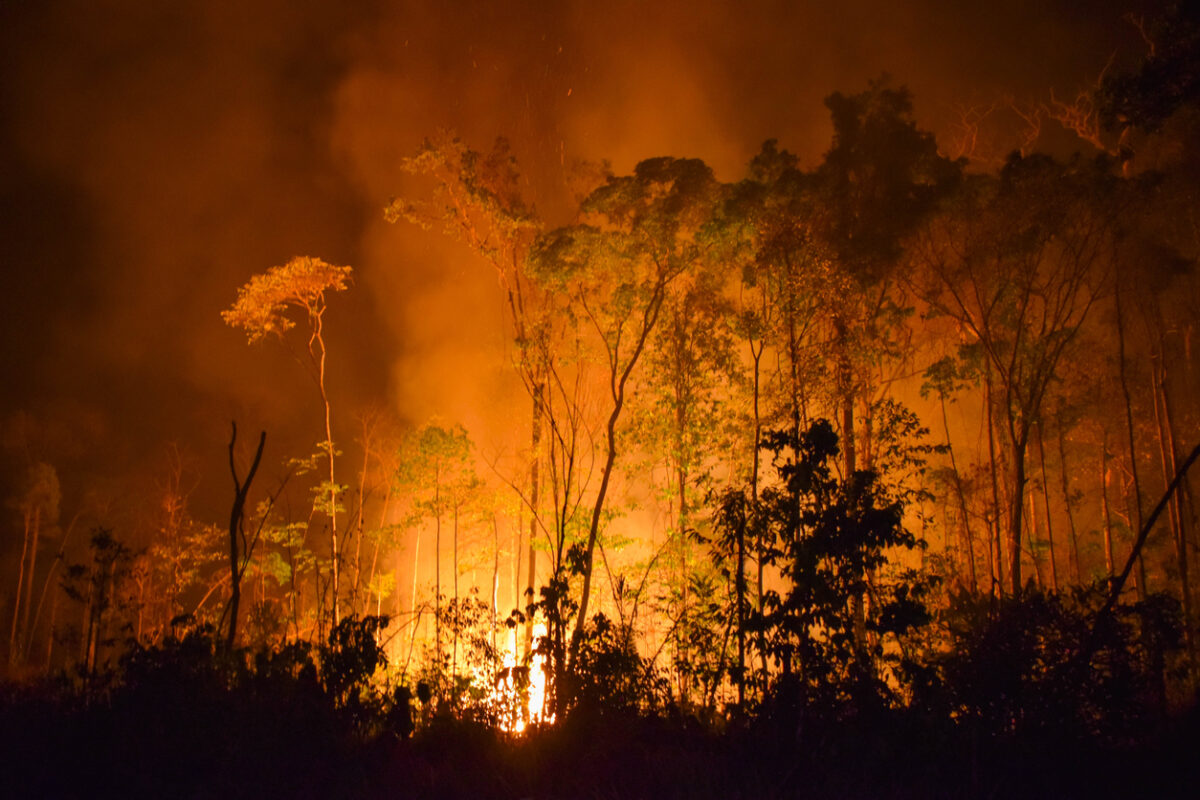COP27: innovation investment and support for rural farmers needed as leaders told to “adapt or starve”

Global food and agriculture were the focus of talks held at COP27 in Egypt this weekend.
Conference delegates were tasked with considering ways in which the world could sustainably feed eight billion people – the population size Earth is expected to reach in the next few years. This was against a backdrop of protests, including from the activists behind the Plant Based Treaty, who were demanding action against meat and dairy industry ‘greenwashing’.
Rural farmers were in sharp focus for policy makers. Small-scale farmers in developing countries produce roughly one-third of the world’s food supply, and yet receive only 1.7% of finance earmarked for adapting to changing climates.
“We need to help rural populations build their resilience to extreme weather events and adapt to a changing climate,” Sabrina Dhowre Elba, Goodwill Ambassador for the UN International Fund for Agricultural Development (IFAD), said during a press conference. “If not, we only go from one crisis to the next. Small scale farmers work hard to grow food for us in tough conditions.”
Failure to protect small-scale farmers from increasingly severe weather conditions like droughts, cyclones and floods will further entrench developing countries into poverty and disrupt food security on both national and global scales.
Dina Saleh, Regional Director of the IFAD, warned the choice was “between adapting or starving”. She added that crop yields could reduce by as much as 50% by the end of the 21st century if no action is taken to support rural farmers and their communities.
To this end, a new initiative was launched by the COP27 Egyptian Presidency. Food and Agriculture for Sustainable Transformation (FAST) will aim to improve the quantity and quality of climate finance contributions to help transform agriculture and food systems by 2030. The FAO will be the facilitator of the programme.
One area which should be targeted for financial support globally is agricultural innovation, leaders were told. “We can’t continue with the current model of producing food and then degrading the soil, declining biodiversity, affecting the environment. No. It must be sustainable,” Zitouni Ould-Dada, Deputy Director of the FAO’s Climate and Environment Division, told UN News.
Beyond solutions like renewable energy and precision irrigation, innovation post-farm gate was also highlighted as a key area for investment. In particular, the world’s food cold chains – supply chains which rely on refrigeration – must be invested in, according to a report launched by the UN Environment Programme (UNEP) and FAO at COP27.
This will help to tackle the enormous problem of food waste globally. “At a time when the international community must act to address the climate and food crises, sustainable food cold chains can make a massive difference,” said Inger Andersen, the UNEP Executive Director.
“They allow us to reduce food loss, improve food security, slow greenhouse gas emissions, create jobs, reduce poverty and build resilience – all in one fell swoop.”
Among the recommendations put forward by the report were ambitious minimum efficiency standards and expansion of and investment in energy efficient refrigerated transport methods.
COP27: cultured chicken on the menu for delegates in Sharm el-Sheikh
Attendees of COP27 will be among the first to trial cultivated chicken from GOOD Meat, the cultured meat division of sustainable food company Eat Just.
The alternative protein will be served as part of a series of ‘historic dining experiences’ organised in partnership with the Singaporean delegation.
GOOD Meat’s presence at the event will mark the first time its products have been tasted outside of Singapore – the only country to have so far granted approval for the food technology – as well as the first instance of cultivated meat being served at COP.
The UN’s Intergovernmental Panel on Climate Change (IPCC) has already recognised cultivated meat as a ‘transformative’ technology in the fight against the climate crisis.
“These technologies have lower land, water and nutrient footprints, and address concerns over animal welfare,” a 2022 report from the IPCC stated.
Additionally, according to research commissioned by GOOD Meat, consumers in the Middle East – which includes both Egypt and Dubai, where next year’s COP event will take place – are keen to incorporate cultivated meat into their diets.
Acknowledging this, Eat Just Co-Founder and Chief Executive Officer Josh Tetrick said there was “no better place” to launch the company’s latest product than COP27.
“We hope our guests at COP27 find their cultivated chicken meals both delicious and thought-provoking and they leave the summit with a new appreciation for the role food innovation can play in combating the global climate crisis,” he stated.
“Singapore was the first country to allow the sale of meat made without tearing down a single forest or displacing an animal’s habitat, and we look forward to other countries following in their footsteps.”
The presence of cultivated meat at the conference is one of several sustainable food-focused initiatives scheduled for this year’s COP.
Also new at COP27 are three dedicated spaces for dialogue relating to food systems: the Food and Agriculture Pavilion, the Food4Climate Pavilion and the Food Systems Pavilion.
It is hoped these spaces will improve understanding of the link between food security, food systems and the intensifying climate crisis, as well as provide solutions.
This said, conference organisers have come under fire this week following the revelation that expensive beef, chicken and fish dishes are on the menu for delegates. Such proteins are huge contributors to greenhouse gas emissions, with beef being the worst of all.
Responding to the news, a Vegan Society spokesperson told MailOnline that the menu was a “missed opportunity for world leaders to connect the issues of diet and climate and lead by example.”








